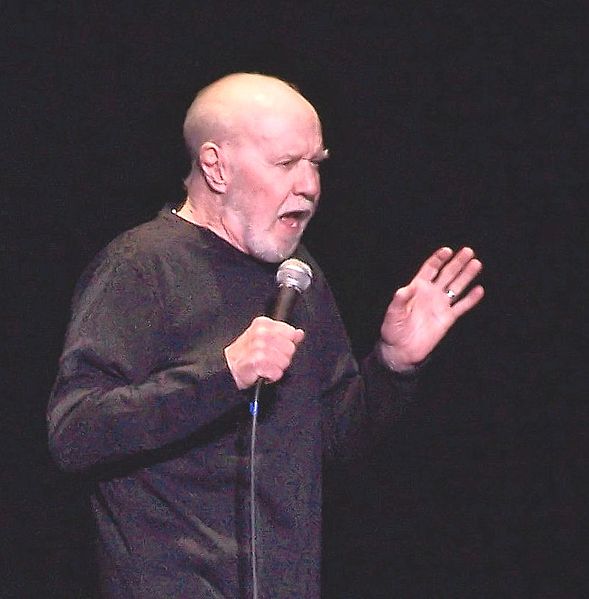“The irony of all this is that my father was such a unique thinker,” said Kelly Carlin, the late comedian’s daughter. “One thing he said to people is, ‘Think for yourself,’ and here are these people absorbing his material to try and think like him. It’s the ultimate zombification of a human life.”
The estate of George Carlin has filed a lawsuit against a media company that recently hosted an hours-long comedy special that used artificial intelligence to recreate the late comedian’s iconic style.
According to The Associated Press, the lawsuit was filed earlier this week in a Los Angeles-based federal court. The complaint names defendants including podcast outlet Dudesy, which produced an audio special entitled, “George Carlin: I’m Glad I’m Dead.”
The special, notes The Associated Press, featured an artificial intelligence-generated facsimile of Carlin providing commentary on current events.
Carlin’s daughter, Kelly Carlin, has since released a statement lambasting the episode as “a poorly-executed facsimile cobbled together by unscrupulous individuals to capitalize on the extraordinary goodwill my father establishing with his adoring fanbase.”
Both the Carlin estate and its executor, Jerold Hamza, are named as plaintiffs in the lawsuit, which claims that Dudesy infringed upon the late comedian’s rights of publicity and copyright.

The defendants include Dudesy and Dudesy-affiliated podcast hosts Will Sasso and Chad Kultgen.
“None of the Defendants’ had permission to use Carlin’s likeness for the AI-generated ‘George Carlin Special,’ nor did they have a license to use any of the late comedian’s copyrighted materials,” the lawsuit alleges.
Attorneys for the Carlin estate observed that, at the beginning of Dudesy’s YouTube special, an artificial intelligence-derived “voiceover” said that it had listened to more than 50 years of Carlin’s comedic material and did its “best to imitate his voice, cadence and attitude as well as the subject matter [it thinks] would have interested him today.”
However, the plaintiffs say that—if this is, in fact, how the special was created—it means that Carlin’s copyrights were necessarily violated. Furthermore, the lawsuit suggests that Dudesy made an intentional and profit-motivated decision, hoping that an AI reincarnation of Carlin could expand the company’s fanbase.
“In short, Defendants sought to capitalize on the name, reputation, and likeness of George Carlin in creating, promoting, and distributing the Dudesy Special and using generated images of Carlin, Carlin’s voice, and images designed to evoke Carlin’s presence on stage,” the complaint alleges.
The lawsuit also seeks to pre-empt a potential First Amendment defense, saying that the special “has no comedic or creative value absent its self-proclaimed connection with George Carlin.”
Many comedians and artists are, for example, shielded from allegations of copyright infringement if copyrighted material was satirical or intended to provide some sort of social commentary.
But the Carlin estate argues that the Dudesy special does not “satirize [Carlin] as a performer or offer an independent critique of society.”
The Carlin estate noted that, even if the special was not monetized, it could have still been underlain by financial considerations.
“If more people saw Dudesy’s content based on Defendants’ exploitation of George Carlin’s name, likeness, and copyrighted works, then more people would see advertisements, would hear the paid sponsorships read during the Dudesy podcast episodes, and would have an opportunity to click through the hyperlinks to buy the Defendants’ merchandise and subscribe to Dudesy+,” the lawsuit states. “In turn, the audience for Dudesy’s offerings would grow, which itself would attract more sponsors.”
In a statement, Kelly Carlin also bluntly condemned Dudesy’s attempts at creativity, saying her father would not have approved of their abject unoriginality.
“The irony of all this is that my father was such a unique thinker,” she said. “One thing he said to people is, ‘Think for yourself,’ and here are these people absorbing his material to try and think like him. It’s the ultimate zombification of a human life.”
Sources
George Carlin estate sues over fake comedy special purportedly generated by AI


Join the conversation!